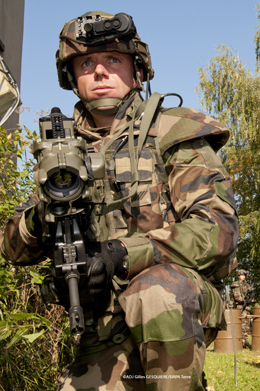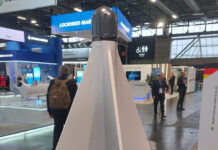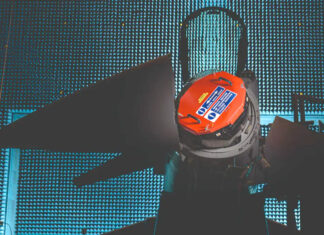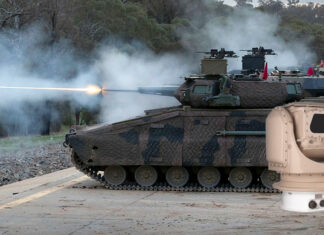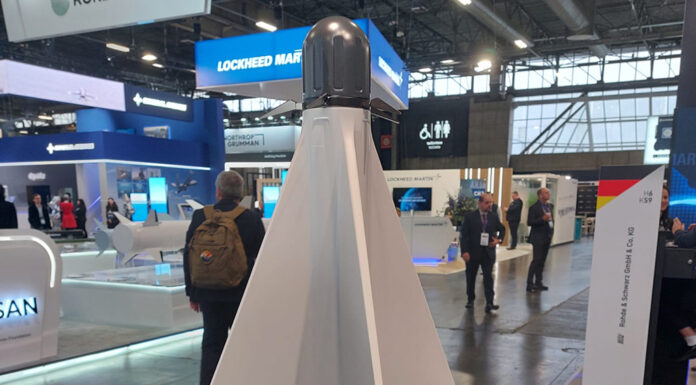The 1st Infantry Regiment, the oldest unit in the French Army, is also the first unit in Europe to implement a full digitized soldier system for dismounted combat.
During the past six weeks the regiment went through an extensive technical orientation process, evaluating the system in direct assault drills, urban combat, stealthy advance in a dark building, offensive reconnaissance, neutralization of hidden enemies, site protection from an observation post. This phase is now followed by the integration of FELIN systems into the regiment’s tactical plans and deployment in foreign theaters scheduled by the end of 2011. Sagem Defense & Security, the prime contractor ans system integrator of FELIN completed the delivery of some 1,000 Felin sets in early September 2010.


FELIN, an integrated equipment suite developed by Sagem for the French army as part of an overall soldier modernization program. At the heart of the system is the “tactical vest”, an advanced combat webbing integrated with cabling harnesses, power packs and electronic units mounting an individual radio with integrated GPS – a first for infantry soldiers – its processing unit, batteries and man-machine interface, namely a miniature terminal that displays data, including orders, positions of fellow troops, and images from gun sights for round-the-corner firing.
Another innovative new item is the osteophonic headband. Placed around the soldier’s head, the headband captures or transmits via the bones of the skull the vibrations from the soldier’s speech or audio receiver. This ensures discreet voice communications in both directions, and leaves the ears free to stay alert to all outside noises. A keyboard on the rifle handgrip allows soldiers to control vital FELIN functions, radio and sight, while keeping their hands on the weapon, eyes on the target, and ready to fire.
FELIN, an integrated equipment suite developed by Sagem for the French army as part of an overall soldier modernization program. At the heart of the system is the “tactical vest”, an advanced combat webbing integrated with cabling harnesses, power packs and electronic units mounting an individual radio with integrated GPS – a first for infantry soldiers – its processing unit, batteries and man-machine interface, namely a miniature terminal that displays data, including orders, positions of fellow troops, and images from gun sights for round-the-corner firing.
Another innovative new item is the osteophonic headband. Placed around the soldier’s head, the headband captures or transmits via the bones of the skull the vibrations from the soldier’s speech or audio receiver. This ensures discreet voice communications in both directions, and leaves the ears free to stay alert to all outside noises. A keyboard on the rifle handgrip allows soldiers to control vital FELIN functions, radio and sight, while keeping their hands on the weapon, eyes on the target, and ready to fire.
Expanded Capabilities
FELIN is a modular system designed to match the role and missions of each user and function. Squad and section leaders have larger terminals with a mapping function, dubbed SITComDE (dismounted warfighter information system terminal), that allows exchanging information with their troops and sending orders. In particular, the blue force tracking (BFT) function: this terminal tracks the positions of friendly forces in real-time, for very effective control of operations. It also enhances intelligence, since it can transmit images from cameras integrated on sights deployed by FELIN-equipped soldiers.
The addition of optronics equipment has considerably increased the effective firing range of Famas rifles, even at night. And the new scopes are especially appreciated during different phases of combat, as one of the regiment commanders explains: “The FELIN scopes give us new day and night firing capabilities. With the Famas rifle, our range now extends out to 400, or even 600 meters.” A squad leader adds: “The Famas rifle now offers real long-distance sharpshooter capability. Furthermore, FELIN technology greatly increases our mobility.” Another officer of the Regiment added “At 400 m, we recorded 100 % shoot-to-kill, 70 % at 600 m.”

Observation and protection capabilities have also been considerably enhanced by the use of new JIM multifunction infrared binoculars. “The FELIN system design is an excellent example of human engineering,” says one captain. “It integrates all ergonomic requirements, while facilitating logistic support and durability. For example, the sight, binoculars and other equipment all run off the same battery.” It has to be notice, that, JIM MR can improve detection of threats and C2, by transmitting sectors of observations to the soldiers of the combat group. In the near future, FELIN will receive a new radio, RIF-NG. Developed also by Sagem, RIF-NG (Réseau d’Information du Fantassin de Nouvelle Génération) new-generation soldier information network is being developed to take account of the planned allocation of the 800 MHz bandwidth used by the RIF, the information network now used by FELIN-equipped units, to civilian 4G (very high speed) mobile networks. The RIF-NG will provide new services in addition to the phone and data functions that are already available on RIF, including radio relay, encryption and transmission protection. Deployed by each soldier and integrated in armored infantry vehicles, the RIF-NG is designed to ensure continuous communications between soldiers and with vehicles, for both mounted and dismounted operations.
From technology, doctrine, training to tactical advantages
This brand-new system will obviously require a dedicated training period before it can be used under combat conditions. Sagem has therefore trained all instructors at the Infantry School, and these instructors are teaching soldiers at regiment level. Starting in January 2011, the men in the 13th Mountain Infantry Battalion at Chambéry, the second regiment to be outfitted with the FELIN system, started a tactical trial in training zones in order to validate operational concepts. This operational training was also an occasion to arrange a period of two weeks for a tactical training for the national school of NCO of the French Army. Four other regiments will take delivery of the system this year, and the overall objective is for 22,600 French soldiers to be equipped with FELIN systems by 2015. According the chief of operations and training of the 1st regiment, “FELIN bring a significant and decisive improvement of our capabilities. Our doctrine has to evolve, in order to translate this new technological step in tactical advantage”.

Related news:

